Humans
Sign up for our newsletter
We summarize the week's scientific breakthroughs every Thursday.
-
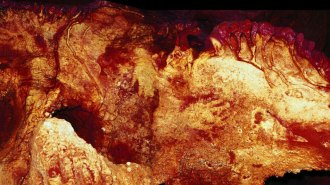 Humans
HumansDating questions challenge whether Neandertals drew Spanish cave art
A method used to date cave paintings in Spain may have overestimated the art’s age by thousands of years, putting its creation after Neandertal times.
By Bruce Bower -
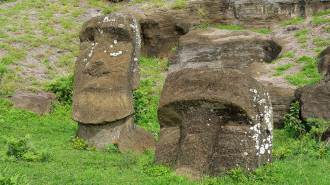 Humans
HumansQuarrying stone for Easter Island statues made soil more fertile for farming
Easter Island’s Polynesian society grew crops in soil made especially fertile by the quarrying of rock for large, humanlike statues, a study suggests.
By Bruce Bower -
 Science & Society
Science & SocietyBias in a common health care algorithm disproportionately hurts black patients
A machine-learning program that uses past medical costs to identify patients for extra care favors white patients over black patients, a study finds.
By Sujata Gupta -
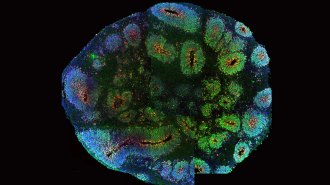 Neuroscience
NeuroscienceLab-grown organoids are more stressed-out than actual brain cells
Compared with real brain tissue, organoids show big differences.
-
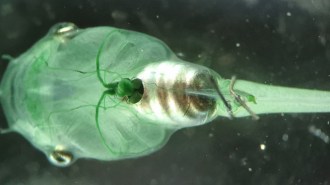 Health & Medicine
Health & MedicineAlgae inside blood vessels could act as oxygen factories
Two types of light-responsive algae make oxygen inside tadpoles’ blood vessels.
-
 Health & Medicine
Health & MedicineProzac proves no better than a placebo in treating kids with autism
In a small clinical trial, drugs called selective serotonin reuptake inhibitors didn’t ease obsessive-compulsive symptoms in children with autism.
-
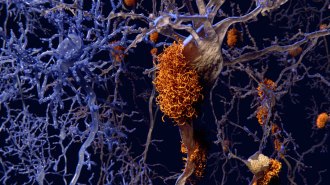 Neuroscience
NeuroscienceAlzheimer’s may scramble metabolism’s connection to sleep
Mice designed to have brain changes that mimic Alzheimer’s disease have altered reactions to blood sugar changes.
-
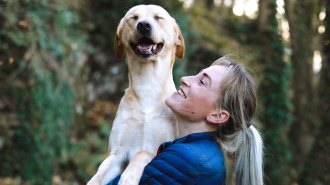 Animals
AnimalsNew books explore why dogs and humans have such a special bond
‘Dog Is Love’ and ‘Our Dogs, Ourselves’ delve into the complicated, sometimes contradictory relationship that we have with our canine companions.
-
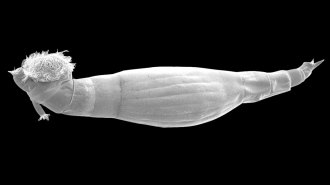 Health & Medicine
Health & MedicineThese tiny aquatic animals secrete a compound that may help fight snail fever
A newly identified molecule from rotifers paralyzes the larvae of worms that cause schistosomiasis, which affects over 200 million people worldwide.
By Sofie Bates -
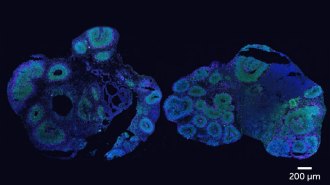 Neuroscience
NeuroscienceOrganoids offer clues to how brains are made in humans and chimpanzees
Three-dimensional clumps of brain cells offer clues about how brains get made in humans and chimpanzees.
-
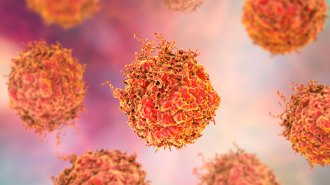 Health & Medicine
Health & MedicineA precision drug for prostate cancer may slow the disease’s spread
The drug olaparib could be used to treat men with certain genetic mutations and severe types of prostate cancer, a clinical trial finds.
By Sofie Bates -
 Health & Medicine
Health & MedicineNearly 1,300 injuries and 29 deaths in the U.S. have been tied to vaping
As the investigation continues, health officials expect multiple causes will be behind the ever-growing number of vaping-related lung injuries.